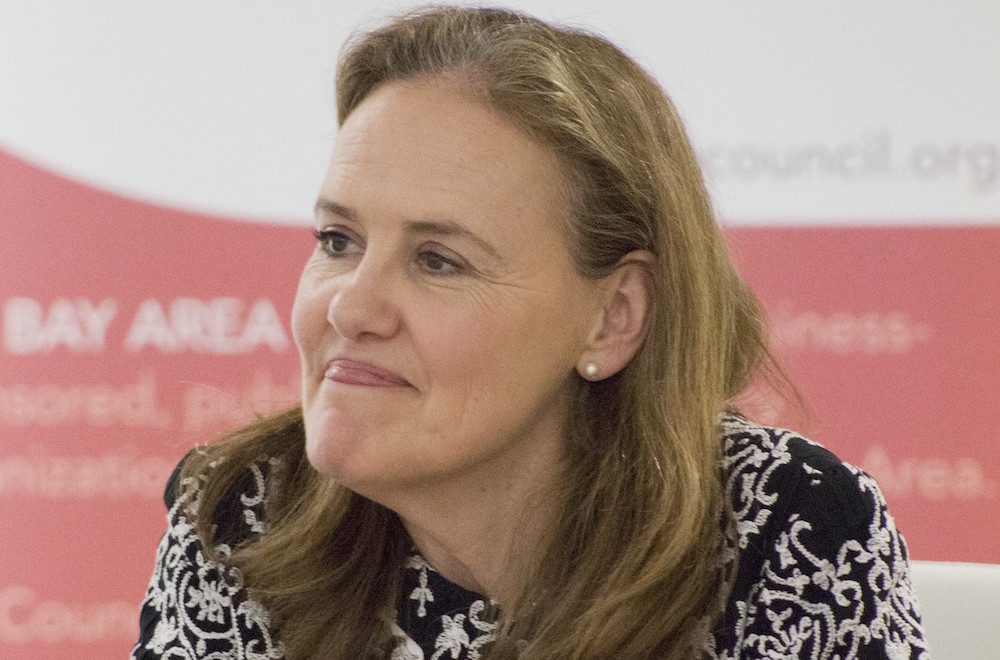Biden Snubs Michelle Flournoy, Selecting Austin

Michelle Flournoy, long considered the first female secretary of Defense-in-waiting, will have to idle for at least a while longer.
Joe Biden did not name her his choice for Pentagon chief last month, when he rolled out his national security team, including his choice for Secretary of State. Now, most major media are reporting, the president-elect has made it official. Lloyd Austin, a retired Army four-star, is his choice for secretary of Defense.
In choosing Austin, Biden has selected a figure perhaps more known to America’s enemies than to Washington’s foreign policy community, where Flournoy is a celebrity. Austin is a former head of United States Central Command, as was President Donald Trump’s first Defense chief, James Mattis. Just four years out of active duty, Austin, like Mattis, will have to get a waiver from Congress to serve, in light of the prohibition of seven years on former military officers for civilian government service.
Flournoy’s snubbing is likely a relief to foreign policy realists who saw her as close to the hawkish Hillary Clinton, the 2016 Democratic presidential nominee. Clinton (like Biden, however) was generally seen as likely to install Flournoy at the Pentagon. Though he served a Republican administration, Mattis toyed with naming Flournoy his deputy in 2017, before running into interference from Trump loyalists in the administration and Congress, which she reportedly overcame, but then pulled out. When Mattis did leave the administration, in 2018, the departure was spurred by a dispute over Syria, where the retired military man favored a more robust, continued U.S. military presence in the war-torn theater. The president did not, though U.S. forces remain.
Austin’s views are more opaque, consistent with the generally apolitical, official nature of the military. At CENTCOM, he led the U.S. campaign that helped obliterate the Islamic State’s land holdings in Iraq and Syria. But in a performance before a Congressional hearing in 2015, Austin conceded the limits of training Syrians to fight the group themselves, despite lavish U.S. financing. Some saw the disclosure as a political faux paux, others as a mark of honesty. In 2016, he joined the board of Raytheon, an elite defense contractor.
It’s plausible that Flournoy — a former secDef for policy, and the co-founder of influential Center for a New American Security (CNAS), as well as the secretive WestExec Advisors — could still be placed elsewhere in the administration. But barring a transition fumble, Biden has already filled the roles of secretary of State, national security advisor and now the captain’s chair at Defense. Together, these three officials are considered the ruling troika of American national security policy, and they are the kind of jobs Flournoy was previously considered a shoe-in for.
The prospect of dashing the ambitions of a prominent woman weighed heavily on Biden, the leader of the escalating identity-conscious Democratic Party. But Biden didn’t unveil the Flournoy selection initially for a reason, implying a coolness toward her that he does not share with Secretary of State nominee-designate (yes, that’s what they’re calling this) Antony Blinken or Jake Sullivan, who was also a top Clinton aide but is now the Biden national security advisory-in-waiting.
Biden had also been under mounting pressure in recent days to up both the Hispanic representation and the number of black appointees in his emerging administration. Gen. Austin, ret., is an African-American, and if confirmed, will undertake the significant role of overseeing a military of a nation still at war. And Biden has recently named Xavier Becerra, the California attorney general and a Latino, as his health secretary. It is a position that will take on outsized importance if Biden tries his hand at healthcare reform, as his two immediate Democratic predecessors, Barack Obama and Bill Clinton, both did.